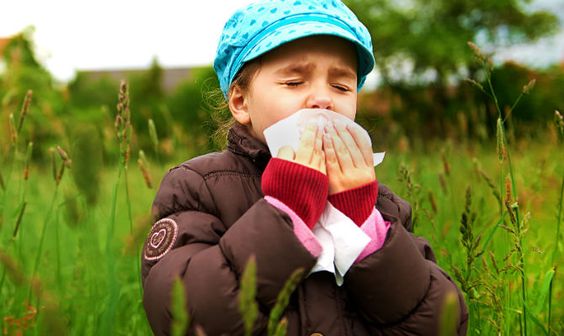
Infant allergy medicine is a blessing to any mother, which sometimes saves the moment. Balancing the allergies in kids, especially infants, is an art. Even though you want to keep your child away from any medications, you need to give the medicine to relieve the symptoms.
The itchy, watery eyes and an irritated throat or a runny nose can be a sore throat for babies who can’t even know what is happening to them. In these situations, allergy medicines are an essential item to keep in the kids’ first aid kit. Before that, you need to know when and how to give them.
For a thorough understanding of infant allergic medicine along with the potential risks and dosage, We present you this edifying article with such care towards your baby! Let’s explore!
Keep that in mind: any allergy medication should only be prescribed by a certified medical practitioner and given to anyone with the practitioner’s directions.
Common Allergies In Babies
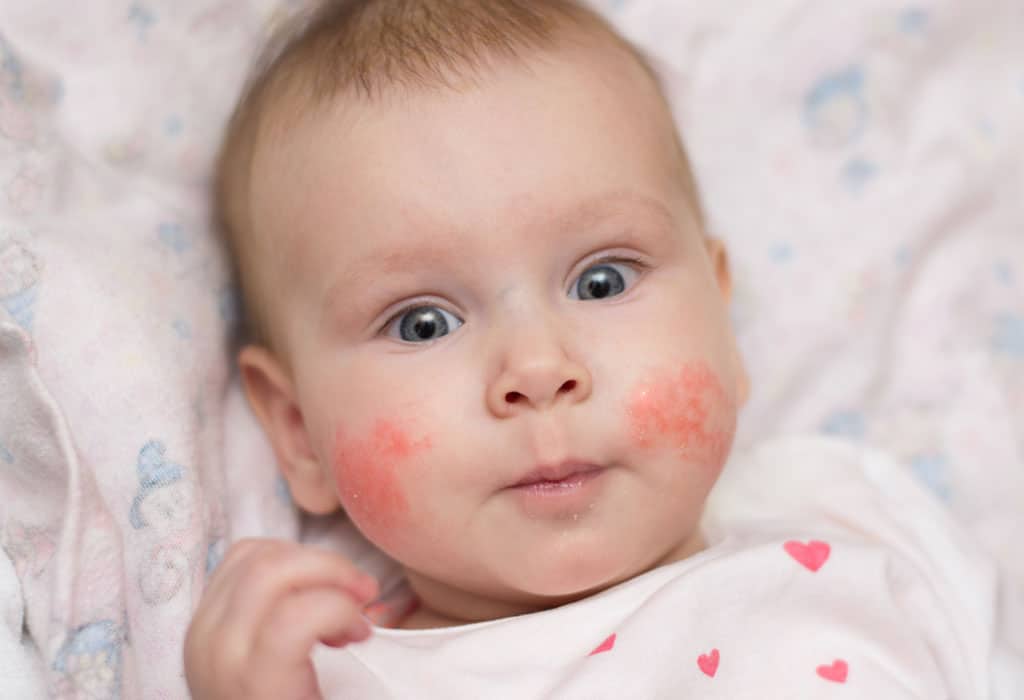
Giving infants allergic medicine starts with the proper diagnosis. The first step is the expert analysis by a professional. Child allergies should not be self-diagnosed as this may lead to the wrong treatment or wrong medication. It is advised not to take any risks with the babies.
For any pediatric allergies, the first thing you should do is to schedule an appointment with the nearest Pediatrician. The doctor can diagnose the condition and guide you with a clear direction and a medication plan for your baby’s allergic situation. This is the safest mode of treating any allergy in kids to stay safe from the risk of the medication.
Allergic Conditions In Babies
You can get relaxed with seasonal allergies that don’t affect infants. The Most common Allergies in infants are skin allergies and food allergies. But allergies such as Asthmatic allergy are kind of something that start to appear around the age of four and that too is hereditary with parents’ history.
Signs And Symptoms Of Allergy
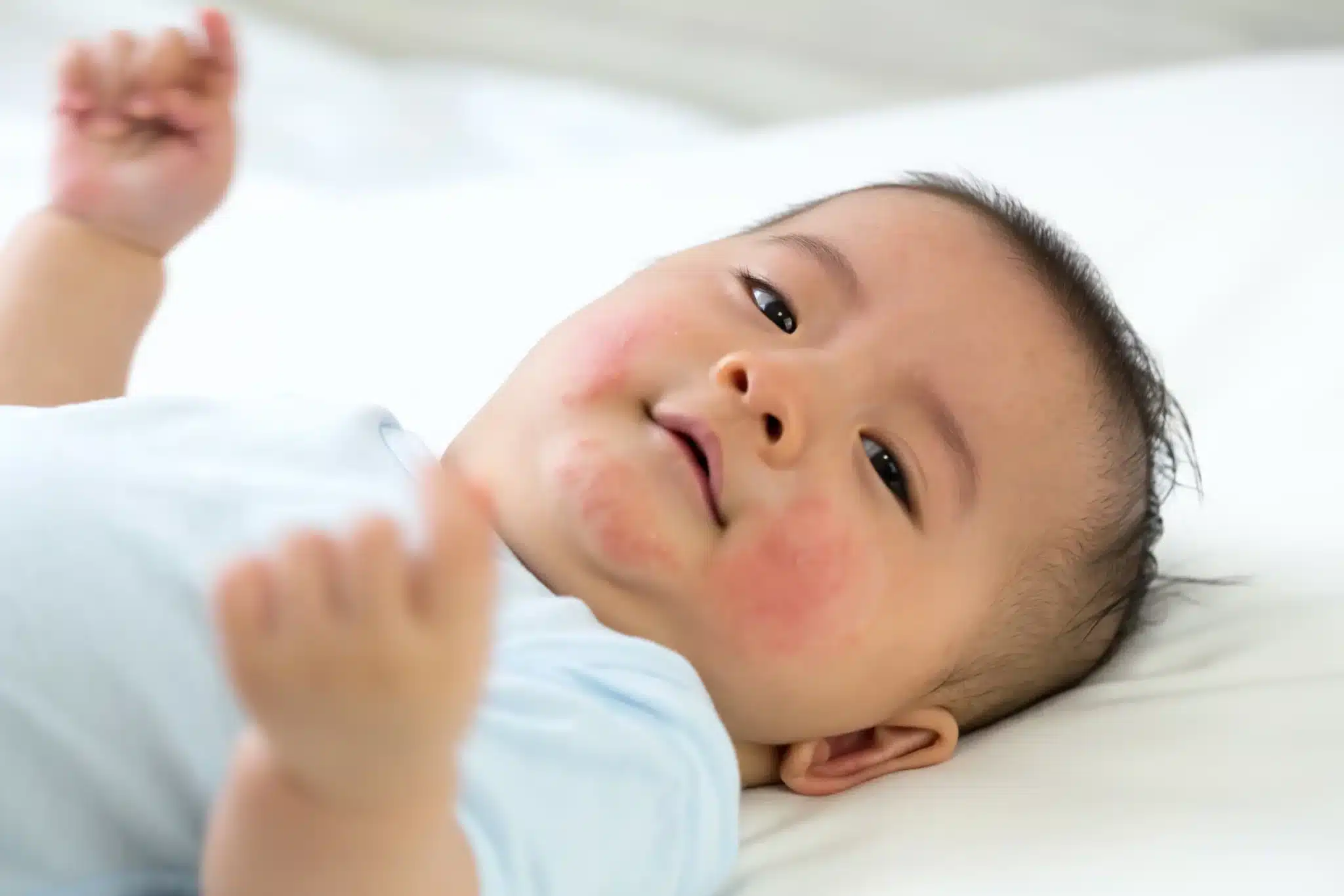
Common symptoms for allergies in infants are the same signs that appear in adults. The symptoms you need to look for in allergic conditions are
- Running or Stuffy nose or both combined
- Post nasal drip
- Sneezing
- Itchy, watery, red eyes
- Skin conditions like inflammation, itching, or rashes over the skin
- Ear discomfort or infection
For any allergic condition with severe symptoms, you must consult with the pediatrician first before giving any infant allergic medicine, particularly kids below the age of four.
Types Of Allergies In Infants
Infants are prone to have allergic reactions to Food, Seasonal allergies, and Indoor allergies.
1. Food Allergies
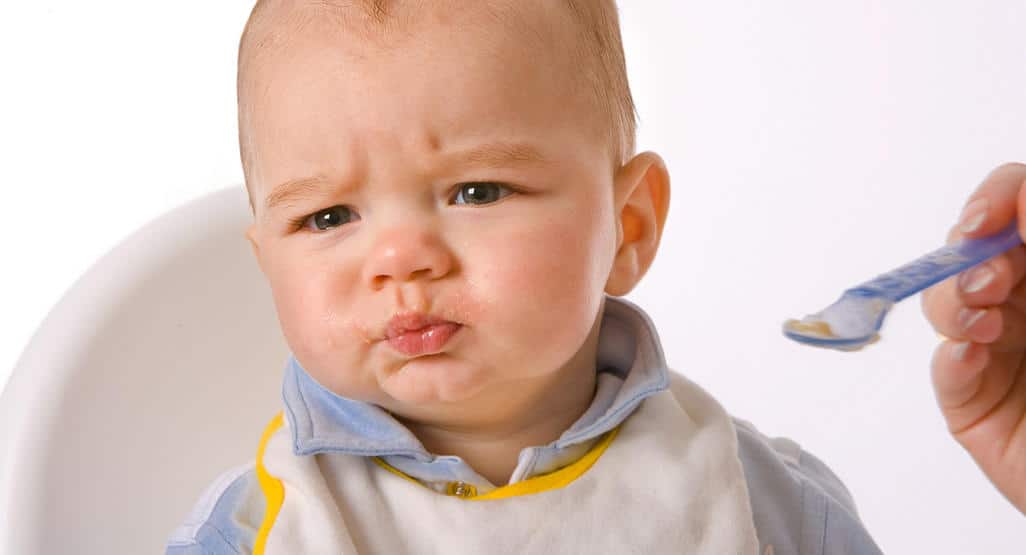
There is no need to worry about food allergies in babies until they start eating the food from breast milk or formula. After that, you might consider these common allergens in food when you start giving the food. Such are,
- Dairy products
- Peanuts
- Tree nuts
- Egg
- Seafood
- Wheat
- Soy
Anyways, the signs and symptoms are mostly overlapping with any other allergy in kids. But food allergies precisely involve gastrointestinal problems swelling of the face and limbs, and on some occasions, it causes trouble breathing. These food allergies should not be left unseen as this is a serious reaction; you might need to seek professional treatment as soon as possible.
2. Seasonal Allergies and Indoor Allergies
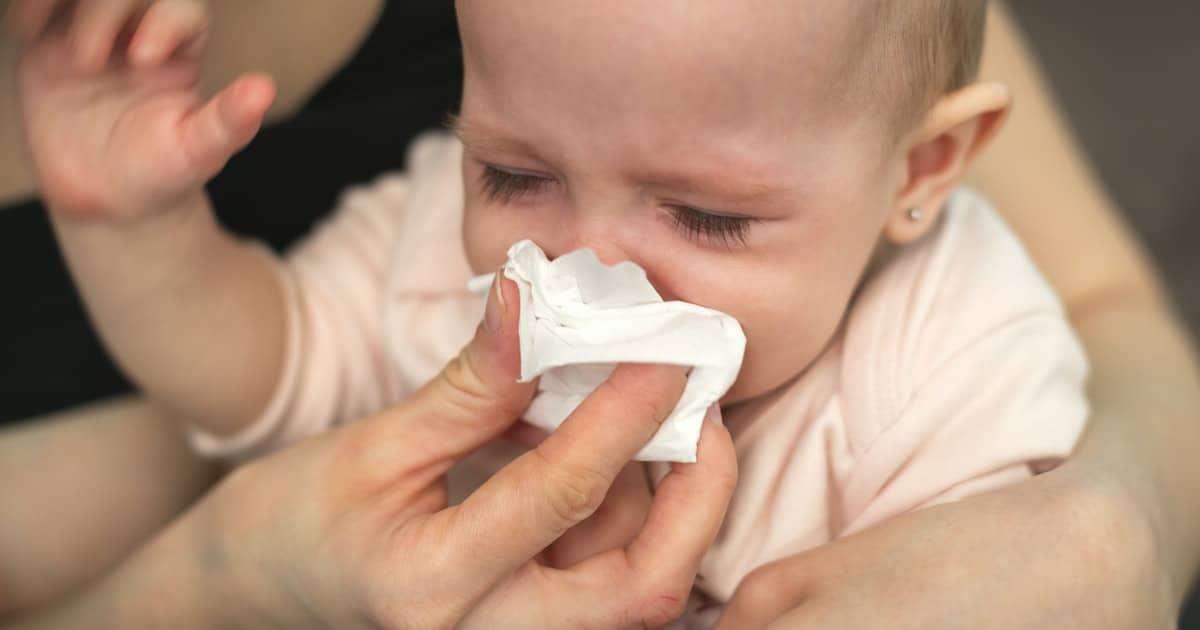
Indoor and seasonal allergies are less complicated and much easier to treat in kids. And you can easily detect the presence of allergies with common signs and symptoms.
The best way to alleviate the kids’ indoor allergies or seasonal allergies is to remove the allergens from your house. The things you might have to consider removing are the fresh flowers or any plants from the house. In allergy season, keep your windows closed to keep the baby away from any allergies. The house should be exceptionally clean and clean, the dust attracting blankets and pillows in regular duration to avoid allergens.
Treating the Allergy in Kids
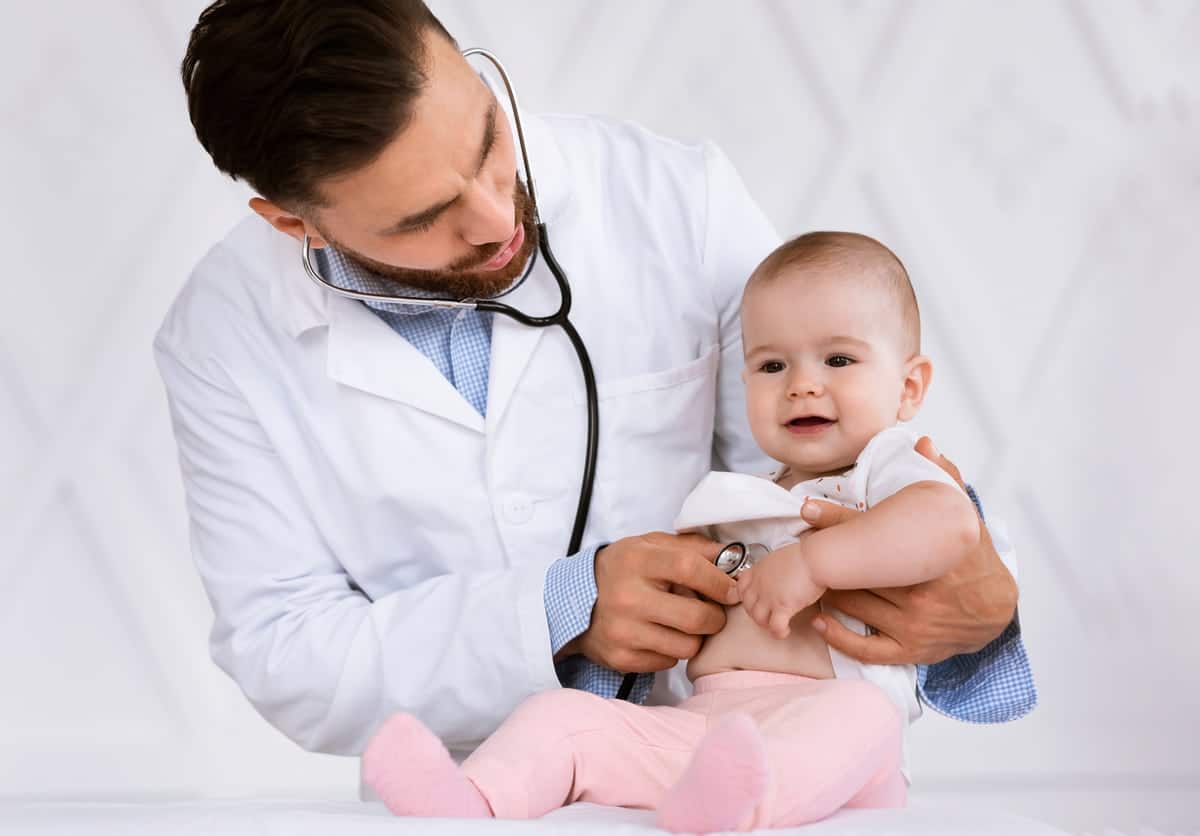
Allergies are usually kept away with keeping the allergens away. If this doesn’t work for you, you might consider seeking professional guidance with infant allergic medicine.
Antihistamines are the first option, with many more options for the kids to take, such as chewable tablets and syrup. For treating indoor and seasonal allergies, antihistamines and decongestants are the popular choices for releasing the symptoms.
Corticosteroids are the medicines used to treat skin allergies in kids in various forms, like creams, nasal sprays, and liquids or pills.
But in most cases, antihistamines, decongestants, and steroids are not advisable for kids below 2 years. Appropriate consultation with the pediatrician could guide through these allergic reactions.
Best and Safe Allergic Medicines for Infants
Allergic medicines are not appropriate for infants sometimes. The most commonly given allergic medicine, the antihistamines, are only advised for kids up or above the age of two. And the decongestants are also safe for kids aged six and up.
The FDA has approved a few medicines that are suitable for infants over the age of six months, such as Clarinex and Xyzal. And also another medication that suits young infants over the age of six months is decided by the form of the medicine and its usage. One such medicine is the Singulair oral granules, which is suitable for infants over six months to treat perennial allergic rhinitis.
Best Allergy Medicines for Kids
Know the fact that the best allergy medication for your kid is the one prescribed by the Paediatrician. Even though there are many over-the-counter medicines available, you need to check with your child’s Pediatrician about the symptoms before giving any medicine.
To understand the position of your child in any allergy, these key points about the allergy medication can give you guidance.
1. Antihistamines
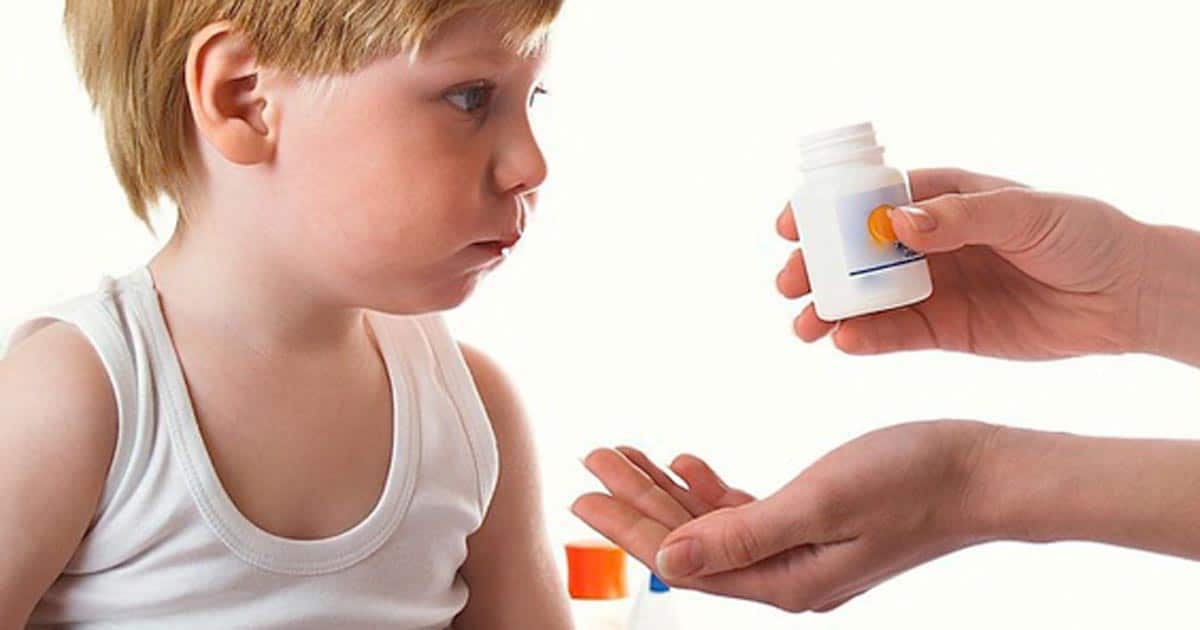
The stuffy nose and itching eyes are all because of the chemical release called histamine in our body. For treating this antihistamines are the commonly used medicine in reducing or preventing the symptoms.
Age criteria
This medicine is generally unsafe for infants and kids below 2 years. However, some categories of antihistamines are approved for babies below six months. Get a clear consultation with your Pediatrician for using this.
When to Take an Antihistamine
This medicine is often taken before the symptoms have started to appear. But some kids are taking them before pollen seasons, and a few kids may take them a year around to stay out of the symptoms.
Duration
The strength of the Antihistamine varies for each formula. Short-acting medicines are effective for 4-6 hours, and long-acting ones are active for over 12 – 24 hours. You can get the advice for the frequency from your allergist.
Side effects
Drowsiness is the major side effect of Antihistamine. That’s why you need Nondrowsy medicine if you are giving it daily. The recently created formulas like Allegra, Claritin, Zyrtec, And Xyzal are coming under the nondrowsy category. The drowsy medicines are best to be given at night to make the kids have a sound sleep.
Types Of Antihistamines
Antihistamines come in different forms for the ease of making the kid consume them to their preferences. Such are Clarinex Atarax, along with over-the-counter medicines like Zyrtec, Allegra, Alavert, Benadryl, and Claritin.
The most popular choice of over-the-counter medicines is Zyrtec syrup- 24 24-hour allergy relieving medicine for kids. Claritin is also on the list of less drowsy medicines to give relief from allergies as a chewable tablet.
Note To Remember
Some of the Antihistamines are combined with the decongestants to give relief from the nasal block. Just check for it and confirm before you give the medicine to your child.
2. Decongestants
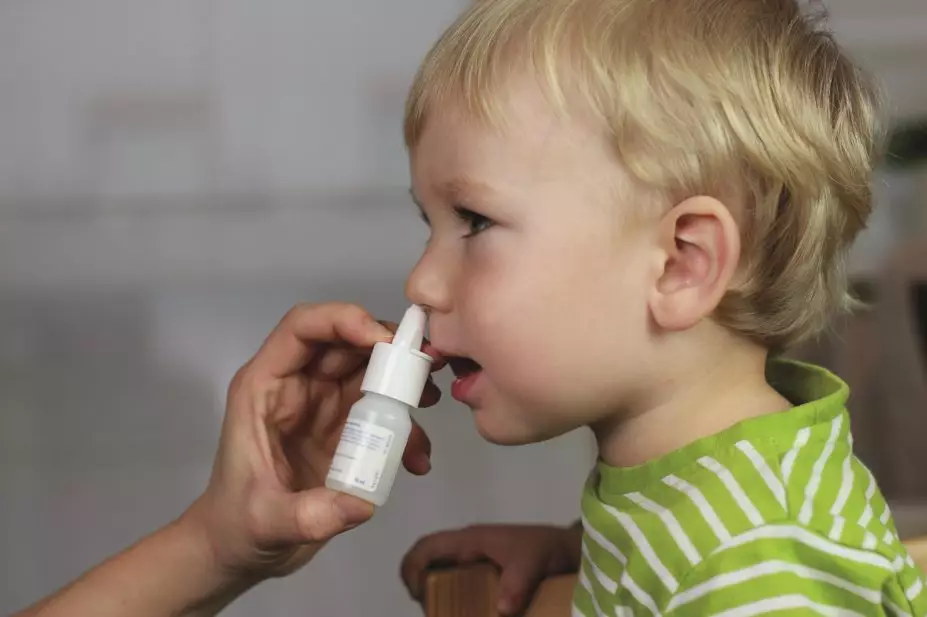
In the management of allergies in kids, the other best option is Decongestants. The stuffy nose and any sinus symptoms are treated with these nasal sprays, tablets, and eye drops. The inflammation present in the nasal vessels is treated by this medicine.
Age Criteria
Kids below the age of six are generally supposed to avoid decongestants as these give only little benefits and raise some inbound side effects. Older kids with nasal and sinus congestion are the ones who can be given this medicine. The decongestants are not like Antihistamines to act for long-term protection, yet they give only short-term relief from allergic symptoms.
Duration
The decongestants are in both forms, slow-release version and fast-release version. Some decongestants work for around 4 – 6 hours, while some can work for around 12-24 hours. You need to confirm with the box for instructions about how many times a kid can take them.
Side Effects
The major side effects of these decongestants are making the kid hyper or anxious. That’s why this medicine is not advisable to use for the long term in kids.
Note To Remember
This decongestant medication should not exceed more than 5-7 days.
Types Of Decongestants
1. Nasal Spray
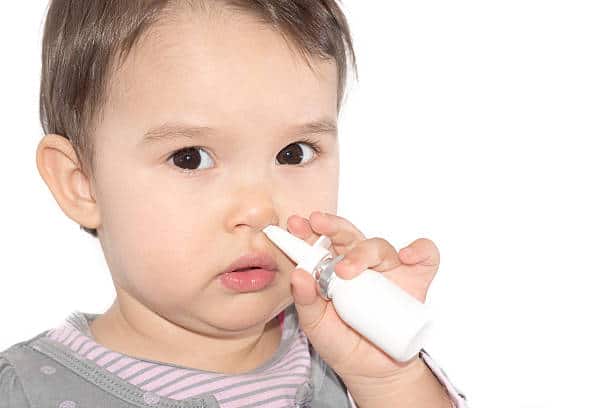
The main purpose of using nasal sprays is to unblock any congestion or reduce inflammation. This is the best option to clear out the symptoms, even though it takes some time. The most commonly used nasal sprays are Astelin and Astepro Antihistamine nasal spray, Nasocart, Flonase, Rhinocort, and the Nasonex topical steroid nasal spray.
2. Eye Drops
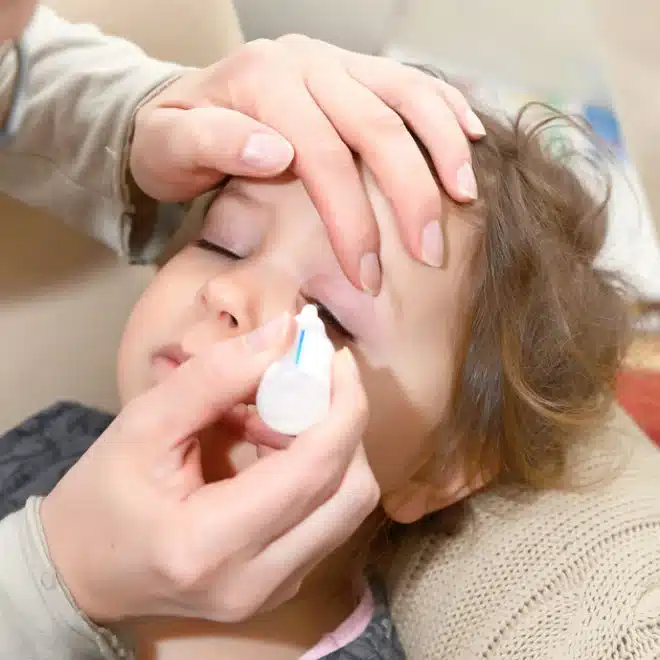
For itchy eyes, eye drops are frequently used to relieve the allergy. Kids above the age of three can be recommended for eye drops. Along with eye drops, other medications are prescribed to give optimal relief. Commonly used eye drops are, Pataday, Optivar, Zaditor, and Patanol.
Other Medications For Allergy

Other than Antihistamines and Decongestants, Asthmatic Medications are also in the allergy medicines category. The allergy shots and the topical creams are also coming under the kid’s allergic medication plan. For example, Corticosteroids are steroids used to treat allergic reactions. They are available in creams, sprays, and inhalers. This treats conditions such as skin rashes, eczema, or asthma.
Decongestants, Asthmatic Medications are also in the allergy medicines category. The allergy shots and the topical creams are also coming under the kid’s allergic medication plan. For example, Corticosteroids are steroids used to treat allergic reactions. They are available in creams, sprays, and inhalers. This treats conditions such as skin rashes, eczema, or asthma.
For long-term protection, allergy immunotherapy is advised as injections to improve the kid’s immune system along with reducing the symptoms. Immunotherapy is given over 3-5 years to get the response.
Tips for Giving Allergy Medications
Allergic medicine giving is a great deal of task; you need to know the safe methods to administrate them. Follow these tips for better health.
- Not all children’s medicine is for your kid’s age. Always consult with your pediatrician to know the directions and dosage for your kid’s age. Checking the label for the expiry date is mandatory, too.
- Reducing the exposure to allergens is equally important. By preventing the exposure, you can stop the allergens from entering the kids’ bodies. Two important things to do to remove the allergens are staying indoors from seasonal allergies and taking a bath before bedtime to avoid pollen allergies.
- Saline solutions to relieve nasal congestion and cold compression for giving relief to itchy eyes are the best home remedies for allergies at home.
- Know the work timing of the medications you give. This helps many times. While the antihistamines give immediate relief, the nasal spray gives relief after administering a short duration.
- Watch for the side effects after giving the medicine; the side effects may rise after a few hours. It is always advised to give the best allergy medicine to reduce the complications of the side effects.
Final Words!
Babies are safe when they are in the exclusive breastfeeding period or in the formula alone. The potential allergies are taking charge after giving the food. What is the age of your kid? This decides the treatment totally. Food allergies, seasonal allergies, and indoor allergies are the common allergies to be treated in kids and infants. However, you can only give fewer medicines to infants.
For older kids above 2 years of age, you can give various types of antihistamines, such as syrups or chewable tablets. The decongestants are particularly to be given to older kids above the age of 6 years. The nasal sprays and eye drops are coming under this category. The immunotherapy is given with corticosteroids for long-term immunotherapy.
You might know the indications and the usage of infant allergic medicines and kids’ allergy treatment procedures now. If you have any further doubts, shoot us your question in the comments!
